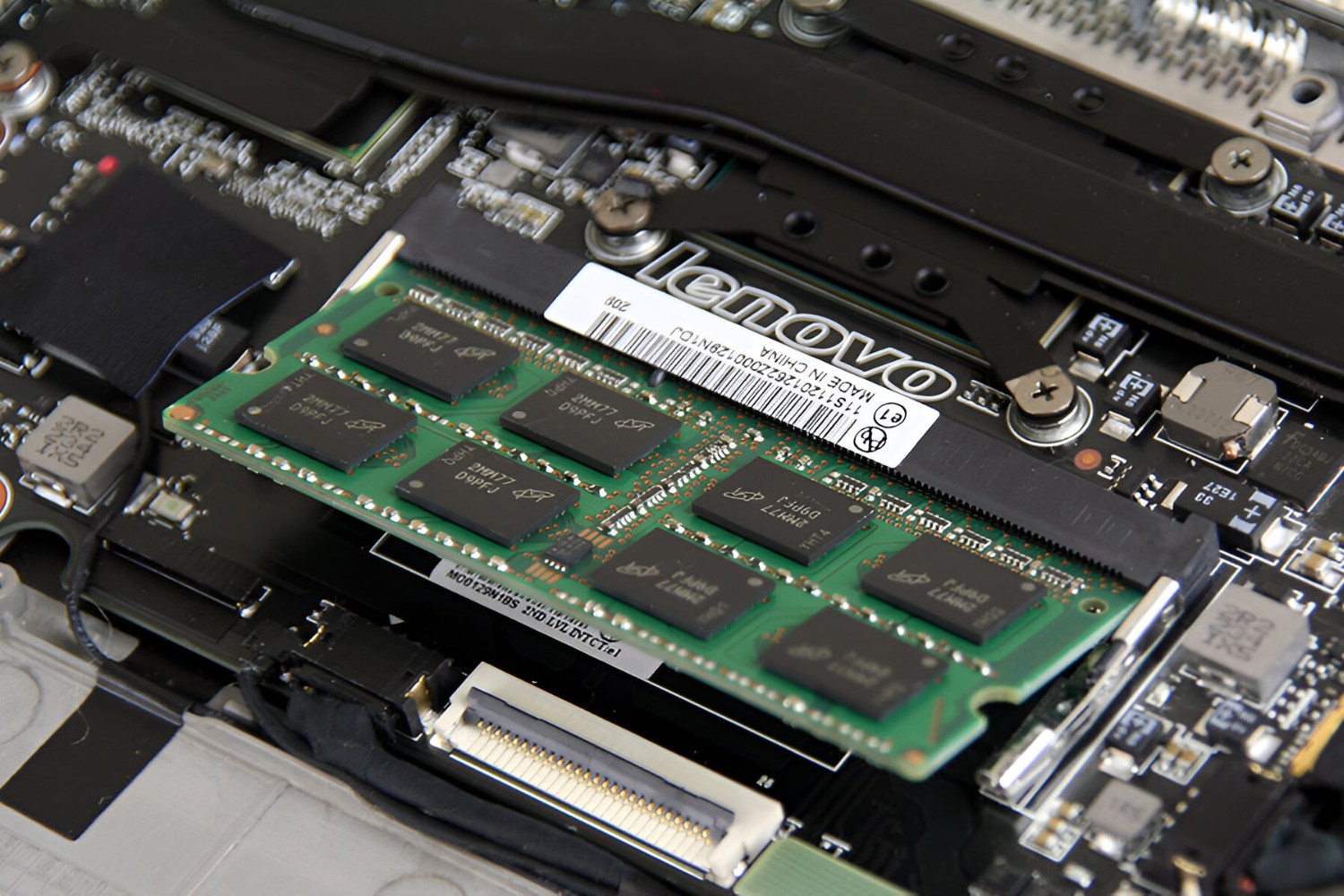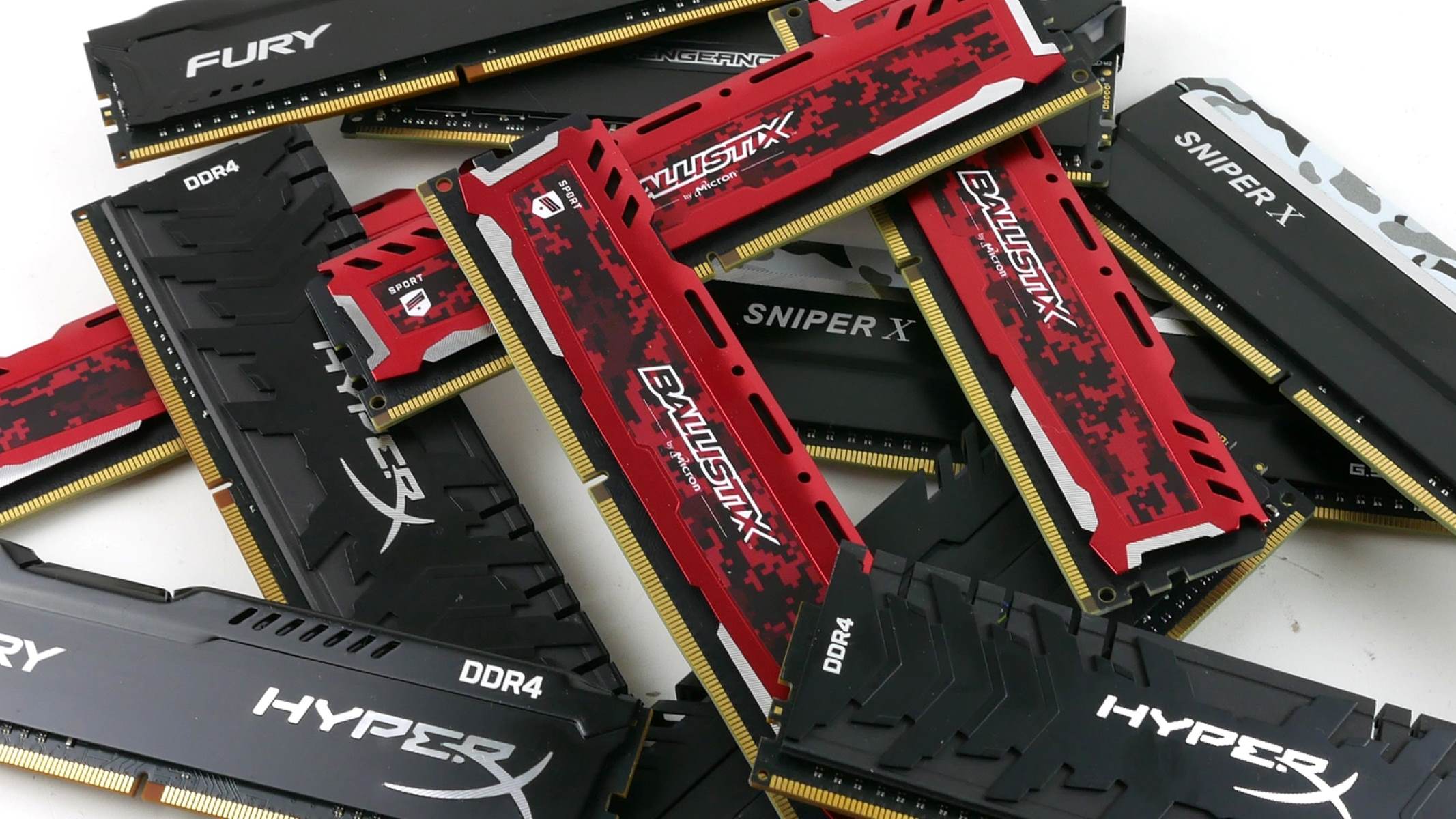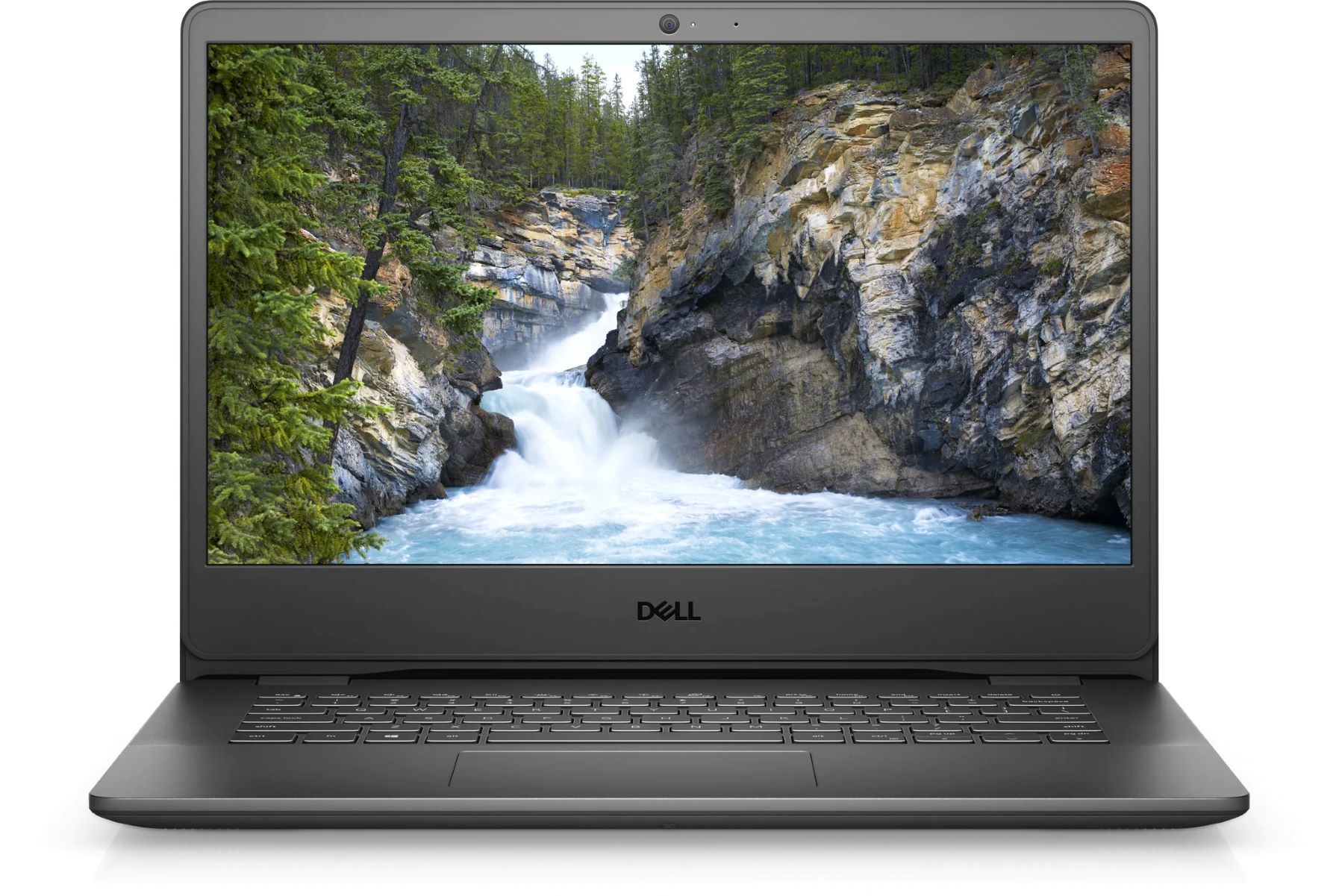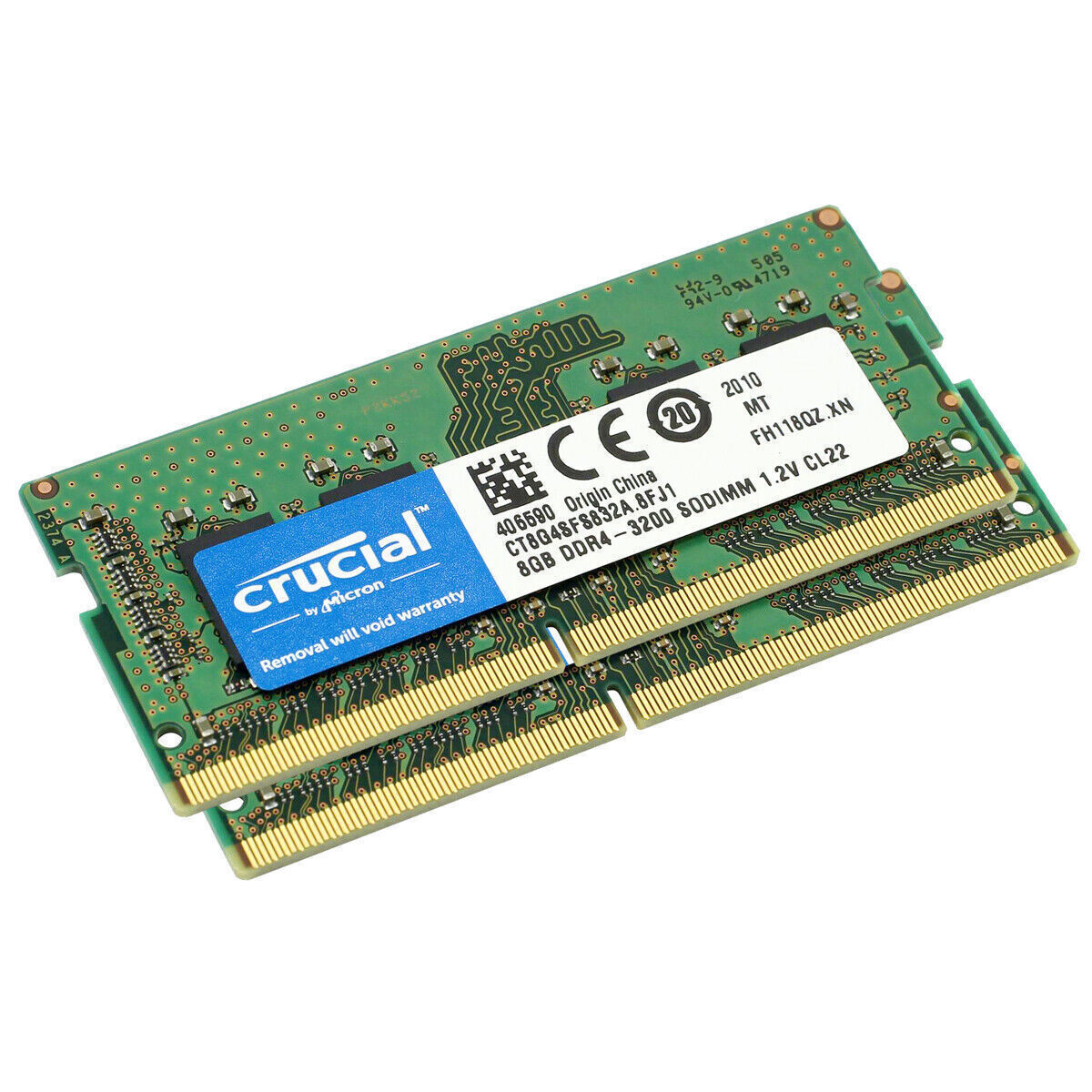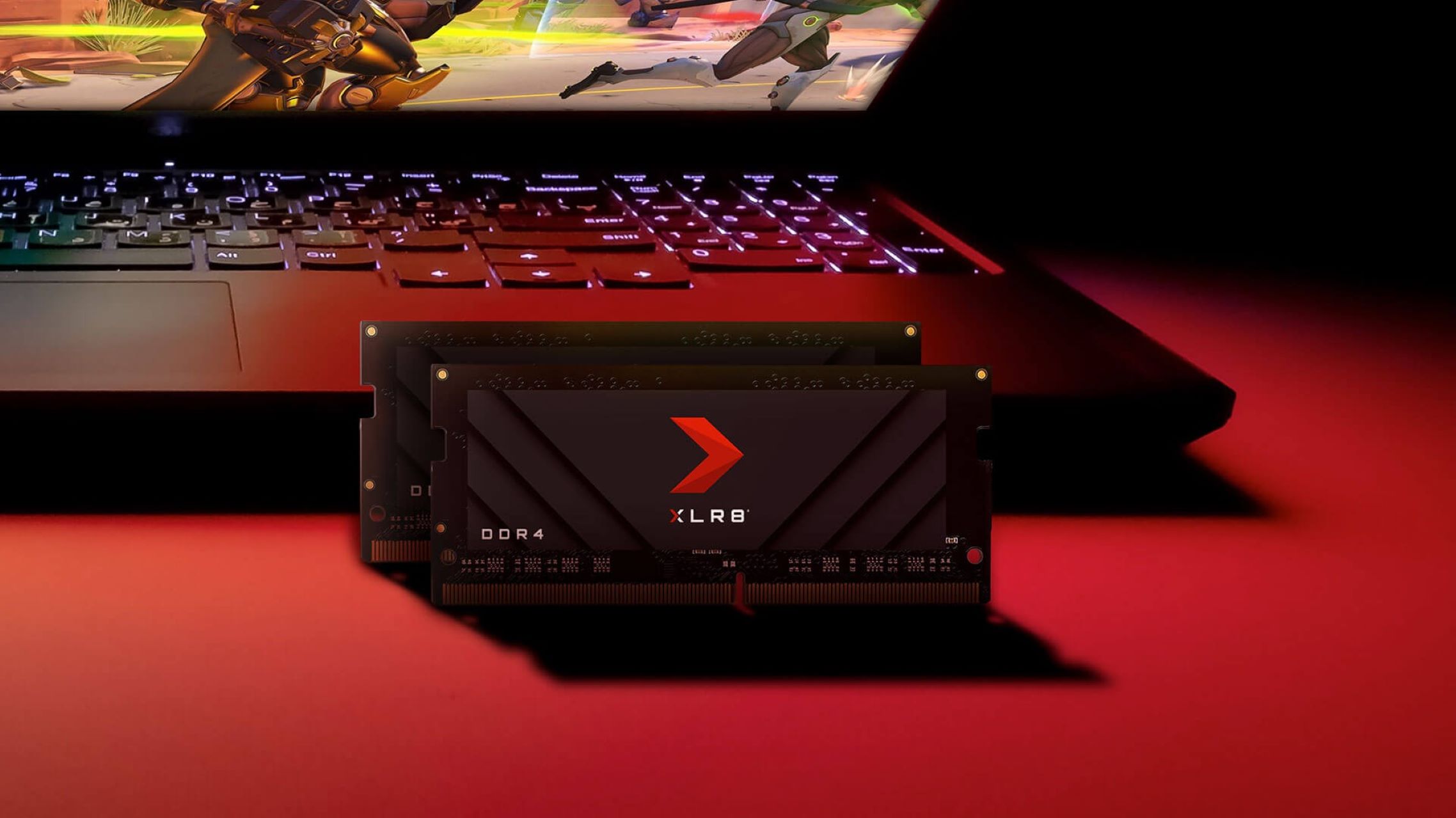Introduction
Welcome to the world of laptops, where technological advancements have brought about remarkable improvements in the capabilities and performance of these portable devices. One of the crucial components that greatly affects a laptop’s performance is RAM or Random Access Memory. If you’ve ever come across the term “8GB RAM” while browsing for laptops, you might wonder what it actually means and how it impacts the overall experience.
RAM serves as the temporary storage space for all the data and instructions that the laptop’s processor needs to access quickly. It allows the system to run multiple applications simultaneously, ensuring smooth multitasking, fast data processing, and efficient performance. In simpler terms, RAM can be considered as the laptop’s short-term memory, enabling it to handle multiple tasks at once without slowing down.
When it comes to RAM, “8GB” refers to the amount of memory that the laptop possesses. It signifies that the laptop has 8 gigabytes of RAM available for use. While this number might seem small compared to the massive storage capacities offered by hard drives and solid-state drives, it plays a critical role in determining how effectively your laptop can handle demanding tasks.
Having 8GB of RAM on a laptop comes with a multitude of benefits. It provides a balance between performance and cost, making it an ideal choice for most users who engage in everyday tasks such as browsing the internet, streaming videos, working on work-related documents, and running office productivity software.
The purpose of this article is to delve deeper into what 8GB RAM means on a laptop and to explore the advantages it offers over other RAM sizes. We will also discuss how 8GB RAM impacts multitasking abilities, gaming performance, and whether it is a suitable choice for your specific needs. So, let’s dive in and discover the significance of 8GB RAM in the world of laptops.
What is RAM?
Before we can fully understand the significance of 8GB RAM on a laptop, let’s briefly explore what RAM is and how it functions within the system. RAM, or Random Access Memory, is a type of computer memory that provides temporary storage for data that the processor needs to access quickly.
Think of RAM as the working space where the processor can store and retrieve data at high speed. It allows the laptop to access and manipulate information without having to rely solely on the slower hard drive or solid-state drive. Unlike long-term storage options, such as hard drives, RAM is volatile memory, meaning it retains data only as long as it has power.
When you open an application or perform a task on your laptop, the necessary data and instructions are loaded from the storage drive into the RAM. This allows the processor to quickly access and execute the required operations, resulting in smooth and responsive performance. The more RAM your laptop has, the more data it can store and access rapidly, improving overall system performance.
RAM’s speed and responsiveness are crucial for multitasking, as it enables the laptop to efficiently switch between different applications and processes. It allows you to seamlessly run multiple programs simultaneously without experiencing significant slowdowns.
It’s important to note that RAM is separate from the laptop’s storage capacity. While storage drives, such as hard drives or solid-state drives, store your files and data for the long term, RAM acts as a temporary storage area for active programs and data. This distinction is necessary because having ample storage space doesn’t necessarily guarantee smooth and efficient multitasking if the laptop lacks sufficient RAM to handle the workload.
As technology advances and software becomes more demanding, the need for sufficient RAM becomes increasingly important. A laptop with inadequate RAM may struggle to handle resource-intensive applications, resulting in sluggish performance and frequent lag. On the other hand, having an adequate amount of RAM ensures smooth multitasking, faster data processing, and an overall pleasant user experience.
RAM and Performance
RAM plays a crucial role in determining the overall performance of a laptop. It directly affects how fast your laptop can process data, handle multiple tasks, and respond to user inputs. The amount of RAM available in a laptop can have a significant impact on its performance in various scenarios.
Having more RAM allows your laptop to store and access a larger amount of data simultaneously, reducing the need to rely on slower storage drives for retrieving information. This results in faster data processing, smoother multitasking, and improved overall system responsiveness.
One of the key benefits of having sufficient RAM is the ability to run multiple applications simultaneously without experiencing significant slowdowns. For instance, if you’re working on a document while simultaneously browsing the internet, listening to music, and running an antivirus scan, having enough RAM ensures that these tasks can be executed smoothly and without any noticeable performance degradation.
RAM also plays a crucial role in optimizing the performance of resource-intensive tasks such as video editing, graphic design, and gaming. These tasks often require a significant amount of memory to store and process large files and render complex visuals. Insufficient RAM can lead to frequent delays, sluggishness, and even crashes when working with such demanding applications.
Another aspect where RAM directly impacts performance is web browsing. With the increasing complexity and resource requirements of modern websites, having sufficient RAM allows your browser to effectively manage and load multiple tabs without causing a significant slowdown. It ensures smoother web browsing, quicker page load times, and a more seamless online experience.
Furthermore, having ample RAM can also enhance the performance of virtual machines and emulators, which are used for running different operating systems or software environments within your primary system. These virtual environments require dedicated memory resources, and having enough RAM ensures optimal performance and smooth operation without any noticeable lag or delays.
It’s important to note that while increasing RAM can improve performance, there is a point of diminishing returns. Once you have enough RAM to handle your typical workload and tasks, adding more RAM may not result in a significant boost in performance. Therefore, it’s essential to consider your specific needs and usage patterns when determining the optimal amount of RAM for your laptop.
What is 8GB RAM?
When it comes to RAM, “8GB” refers to the amount of memory that a laptop possesses. Specifically, 8GB RAM indicates that the laptop has 8 gigabytes of RAM available for use. This size of RAM is considered to be a popular and practical choice for many users.
8GB of RAM strikes a balance between performance and cost-effectiveness, making it suitable for a wide range of computing tasks. It provides sufficient memory to handle everyday tasks such as web browsing, email, document editing, and multimedia consumption.
With 8GB of RAM, your laptop can efficiently run multiple applications simultaneously without experiencing major performance issues. This means you can browse the web, stream videos, have multiple tabs open, and work on documents without experiencing significant slowdowns or lag.
Additionally, 8GB of RAM is often more than enough for running popular office productivity software such as word processors, spreadsheets, and presentation software. These applications typically have moderate memory requirements and can run smoothly with 8GB of RAM, allowing for seamless productivity and efficient multitasking.
While 8GB of RAM may not be sufficient for resource-intensive tasks like video editing, graphic design, or running highly demanding software, it is still capable of handling lighter photo editing tasks, casual gaming, and entertainment purposes. However, for more demanding tasks, a higher RAM capacity (such as 16GB or 32GB) may be recommended to ensure optimal performance.
It’s worth noting that the amount of RAM needed ultimately depends on your specific needs and usage patterns. If you primarily use your laptop for light to moderate tasks and do not frequently engage in resource-intensive activities, 8GB of RAM can provide a smooth and satisfying user experience.
Additionally, it’s important to consider the upgradeability of your laptop’s RAM. If your laptop has an upgradeable RAM slot, it gives you the flexibility to increase the RAM in the future if needed. This allows you to start with 8GB of RAM and potentially upgrade to a higher capacity as your computing needs evolve.
In summary, 8GB RAM is a practical choice for many laptop users, striking a balance between performance and cost-effectiveness. It provides ample memory to handle everyday tasks, light to moderate multitasking, and office productivity applications. While it may not be sufficient for resource-intensive tasks, it can still deliver a smooth and efficient user experience for a wide range of computing needs.
Benefits of Having 8GB RAM
Having 8GB of RAM in your laptop comes with several benefits that enhance the overall performance and user experience. Let’s explore some of the advantages of having this amount of memory.
1. Smooth Multitasking: With 8GB of RAM, your laptop can efficiently handle multitasking. You can have multiple applications and browser tabs open simultaneously without experiencing significant slowdowns or performance issues. This allows you to seamlessly switch between tasks, boosting productivity and efficiency.
2. Faster Data Processing: 8GB of RAM enables your laptop’s processor to quickly access and retrieve data from memory, resulting in faster data processing. This is particularly beneficial when working with large files, running resource-intensive software, or performing complex calculations. It ensures a smooth and responsive computing experience.
3. Improved Responsiveness: With ample RAM, your laptop can better respond to user inputs and commands. This means that launching applications, opening files, and performing various operations will be faster and more fluid. Your laptop will feel more responsive and in sync with your actions.
4. Enhanced Gaming Performance: While 8GB of RAM may not be sufficient for running the most demanding games with ultra-settings, it is still capable of delivering a good gaming experience for many titles. It allows for smoother gameplay, shorter loading times, and better overall performance in games that have moderate memory requirements.
5. Improved Web Browsing: With modern websites becoming more complex and resource-intensive, having 8GB of RAM ensures a smoother web browsing experience. It allows your browser to efficiently manage multiple tabs, ensuring faster page loading times and a seamless online experience.
6. Future-Proofing: While 8GB of RAM is currently considered a standard and practical choice, technology is constantly evolving. By having 8GB of RAM in your laptop, you are ensuring that your device will be able to meet the memory requirements of future software and applications for a reasonable amount of time. It provides a level of future-proofing that allows you to use your laptop comfortably without feeling the need to upgrade in the near future.
7. Cost-Effectiveness: 8GB of RAM strikes a balance between performance and cost-effectiveness. It offers a sufficient memory capacity for most users’ needs without significantly driving up the cost of the laptop. It is a practical choice that delivers a smooth computing experience without breaking the bank.
In summary, having 8GB of RAM in your laptop provides numerous benefits, including smooth multitasking, faster data processing, improved responsiveness, enhanced gaming performance for many titles, a seamless web browsing experience, future-proofing, and cost-effectiveness. It is a well-rounded memory capacity that offers a balanced performance for a wide range of computing tasks and user needs.
Multitasking and 8GB RAM
One of the significant advantages of having 8GB of RAM in your laptop is its ability to handle multitasking efficiently. With this amount of memory, you can seamlessly run multiple applications and perform various tasks simultaneously without experiencing significant performance slowdowns.
When you have a sufficient amount of RAM, such as 8GB, your laptop can store and access a larger number of active programs and data in its memory. This means that you can have multiple applications, browser tabs, and documents open at the same time without encountering noticeable lag or delays when switching between them.
For example, you can have a web browser open with multiple tabs for browsing, while also working on a document, listening to music, and running a chat application. With 8GB of RAM, your laptop can quickly and smoothly switch between these tasks, allowing you to be more productive and efficient.
In addition to smoother multitasking, 8GB of RAM also helps prevent the excessive use of virtual memory, which can occur when the available RAM is insufficient. When your laptop runs out of physical RAM, it will start using the hard drive or solid-state drive as virtual memory, which significantly slows down performance. Having 8GB of RAM reduces the likelihood of relying heavily on virtual memory, resulting in a more responsive and snappy computing experience.
Another advantage of 8GB of RAM for multitasking is the reduced risk of running out of memory when using memory-intensive applications. Resource-hungry software, such as video editing programs or virtual machines, can consume a significant amount of RAM. With 8GB of RAM, your laptop can handle these applications more effectively, ensuring smooth operation and minimizing the chances of memory-related crashes or performance issues.
Furthermore, 8GB of RAM allows you to keep background processes and services running without impacting the performance of your primary tasks. This means that antivirus scans, system updates, cloud syncing, and other background operations can continue to run while you work on other tasks, ensuring that your laptop remains secure and up-to-date without hindering your productivity.
Overall, 8GB of RAM provides a substantial boost to multitasking capabilities, enabling you to work more efficiently, switch between tasks seamlessly, and run multiple applications simultaneously without sacrificing performance. It enhances your productivity and allows you to make the most of your laptop’s capabilities.
Gaming and 8GB RAM
Gaming is a popular activity for many laptop users, and having sufficient RAM is crucial for an optimal gaming experience. While 8GB of RAM may not be considered high-end in terms of gaming requirements, it can still deliver satisfactory performance for a wide range of games.
With 8GB of RAM, your laptop can handle most casual and mid-tier games without significant performance issues. It provides enough memory to store essential game assets, textures, and data, allowing for smoother gameplay and shorter loading times.
Many popular titles, including multiplayer online games and indie games, are designed to run smoothly with 8GB of RAM. These games typically have moderate memory requirements and can run without any noticeable performance degradation on laptops equipped with 8GB RAM.
However, it’s important to note that gaming performance is influenced by several factors, including the graphics card, processor, and overall system configuration. While 8GB of RAM is sufficient for many games, more demanding and graphically intensive titles may require higher RAM capacities, along with a powerful graphics card and processor.
If you’re a casual gamer who enjoys playing less demanding games like puzzle games, strategy games, or older titles, 8GB of RAM will provide a smooth gaming experience. You’ll be able to enjoy these games without any significant lag or performance issues.
For more demanding games, such as modern AAA titles or games with advanced graphics and effects, 8GB of RAM may be limiting. In these cases, increasing the RAM capacity or choosing a laptop with higher RAM capacity may be necessary to ensure smooth gameplay and avoid performance bottlenecks.
It’s also worth mentioning that some games require additional system resources for background processes, game launchers, or voice chats. With 8GB of RAM, you’ll have enough headroom to accommodate these extra processes without impacting gameplay performance.
Ultimately, the gaming experience with 8GB of RAM will depend on the specific game requirements and your expectations. For most casual gamers or those on a budget, 8GB of RAM provides a good balance between performance and affordability. However, for avid gamers or those who want to play the latest, most demanding titles, investing in systems with higher RAM capacity may be necessary to achieve optimal gaming performance.
Considering all factors, 8GB of RAM can deliver a satisfactory gaming experience for a wide range of games, ensuring smooth gameplay, shorter loading times, and the ability to run multiple game-related applications simultaneously. It provides a solid foundation for gaming while keeping costs in check.
8GB RAM vs. Other RAM Sizes
When it comes to choosing the right RAM size for your laptop, it’s essential to consider the specific requirements of your computing tasks and your budget. While 8GB of RAM is a popular choice, there are other RAM sizes available that offer different benefits and performance levels.
4GB RAM: 4GB of RAM is considered the minimum requirement for most modern operating systems and software. It is suitable for basic everyday tasks such as web browsing, email, and word processing. However, it may struggle with more demanding applications, multitasking, and resource-intensive tasks. While it can provide a functioning system, performance limitations may become apparent when running multiple applications simultaneously or working with large files.
16GB RAM: 16GB of RAM is considered a more powerful option. It provides ample memory for smooth multitasking, handling resource-intensive applications, and even professional tasks like video editing or 3D rendering. With 16GB of RAM, you can comfortably run multiple applications simultaneously, ensuring a responsive and fluid user experience. It is also suitable for gamers who want to play the latest titles without any significant performance issues.
32GB RAM: 32GB of RAM is considered a high-end choice. It is primarily targeted at professionals who work with extremely resource-intensive tasks, such as video editing, 3D modeling, and virtualization. It provides a significant amount of memory for handling large datasets, complex projects, and running multiple virtual machines simultaneously. While 32GB of RAM offers exceptional performance, it is considered overkill for typical everyday tasks and casual use.
The choice between 8GB, 16GB, or even 32GB of RAM depends on the nature of your computing tasks, budget, and future needs. If you primarily engage in light to moderate tasks like web browsing, document editing, multimedia consumption, and casual gaming, 8GB of RAM is usually sufficient to provide a smooth and responsive experience.
However, if you frequently engage in resource-intensive activities such as video editing, graphic design, or running virtual machines, upgrading to 16GB or even 32GB of RAM can significantly improve performance and multitasking capabilities. These larger RAM sizes are also preferable for gamers who want to play the latest AAA titles with maximum graphics settings and ensure optimal performance in demanding games.
It’s important to note that while larger RAM sizes offer improved performance, there is a point of diminishing returns. Once you have enough RAM to handle your specific tasks comfortably, further increasing the RAM size may not result in noticeable performance benefits. Therefore, it’s crucial to consider your specific needs and budget when deciding on the appropriate RAM size for your laptop.
In summary, 8GB of RAM strikes a balance between performance and affordability, making it a practical choice for most users. However, higher RAM sizes such as 16GB or 32GB offer increased multitasking capabilities, improved performance for resource-intensive tasks, and a better gaming experience. The choice of RAM size ultimately depends on the nature of your computing needs, budget, and level of performance required.
Conclusion
RAM plays a vital role in the overall performance and multitasking capabilities of a laptop. Having sufficient memory, such as 8GB of RAM, significantly contributes to a smooth and responsive computing experience.
With 8GB of RAM, you can effectively handle everyday tasks such as web browsing, document editing, multimedia consumption, and casual gaming. It allows you to run multiple applications simultaneously without noticeable slowdowns, ensuring seamless multitasking and improved productivity.
While 8GB of RAM may not be sufficient for highly resource-intensive tasks like video editing, graphic design, or running virtual machines at an optimal level, it still offers a good balance between performance and affordability for most users. It provides a solid foundation for everyday computing needs without breaking the bank.
When it comes to gaming, 8GB of RAM can deliver satisfactory performance for many popular games, although more demanding and graphically intensive titles may require higher RAM capacities for optimal gameplay.
Overall, 8GB of RAM provides a practical choice that can meet the needs of a wide range of users. However, it’s essential to consider your specific computing requirements, multitasking demands, and future needs when deciding on the ideal RAM size for your laptop.
Remember, RAM is just one component that contributes to overall system performance. Other factors like the processor, graphics card, and storage drive also play a crucial role. It’s important to consider the overall system configuration to ensure a well-rounded and optimized computing experience.
Whether you’re a student, professional, casual user, or gamer, having sufficient RAM is essential for a smooth and efficient laptop experience. By understanding the importance of RAM and how different RAM sizes impact performance, you can make an informed decision that best suits your computing needs and budget.
Investing in a laptop with 8GB of RAM ensures that you have the necessary memory capacity to handle multitasking, resource-intensive applications, and everyday computing tasks efficiently. It sets the foundation for a responsive and enjoyable computing experience, empowering you to work, play, and create with ease.







